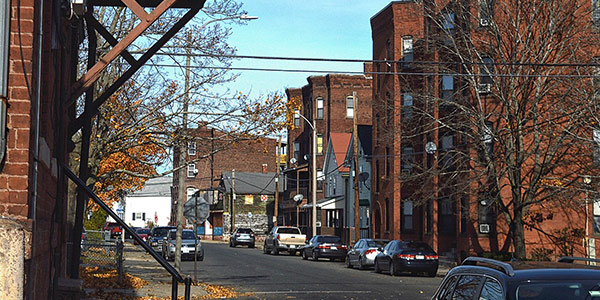Members of the Massachusetts legislature on Thursday announced new bills to lower emissions, launch a new source of employment and combat racial inequities.
The Building Justice with Jobs Act, supported by Rep. Maria Robinson (D), Rep. David LeBoeuf (D) and Sen. Marc Pacheco (D), seeks to retrofit 1 million homes to be energy efficient in 10 years by strengthening insulation and upgrading heating and cooling systems.
Retrofitting 100,000 homes per year for the next decade would bring unionized jobs to the state for those struggling financially in the wake of the COVID-19 pandemic, Robinson said at a launch event for the Mass Renews Alliance, a coalition of labor, youth, climate and social justice organizations focused on climate, racial and economic justice issues in the state.
Alan Palm, director of 350 Mass’ organizing efforts, said most homes in Massachusetts are older, with poor insulation and ventilation. Those homes also have low indoor air quality from burning fossil fuels on site and high utility bills.
Heating and cooling infrastructure in homes and commercial buildings are the second-largest source of emissions in Massachusetts after transportation, according to state data.
Massachusetts is also home to three of the top 100 asthma capitals of the U.S., according to the Asthma and Allergy Foundation of America. Springfield is at the top of the list, followed by Boston at No. 8 and Worcester at 30.
“The Building Justice with Jobs Act puts substance to the commonwealth’s goal of net-zero emissions by 2050 by fixing the homes in the greatest need,” Palm said. The legislation would allow for the installation of electric heat pumps and weatherization measures to make homes “healthier, more comfortable and more resilient,” he said.
Concentrations of housing that do not meet those efficiency standards fall along racial and income lines because of “generations of discriminatory policies,” Palm said. Environmental justice communities will be prioritized in the legislation’s outreach and access to program benefits.
U.S. Rep. Ayanna Pressley (D) said the announcement of new legislation and the launch of the Mass Renews Alliance “cannot be more relevant or more timely given what’s at stake for our collective future.”
“We can’t find the most durable and lasting policy changes until and unless every community is included in the decision-making process,” Pressley said of the new bill, which aims to holistically address the intersection of climate change, racial injustice and economic recovery after the COVID-19 pandemic.
Pacheco said the group’s work complements what is happening at the federal level with President Biden’s pandemic recovery plan, which he said puts climate change and justice for communities impacted the most at the center of his response to the virus.
State Sen. Joseph Boncore (D) and Rep. Adrian Madaro (D) are also introducing the Food Justice and Climate Act, which aims to create a local food system that reduces food waste and lessens the environmental impact of the state food system. The bill would also encourage gardening in environmental justice communities, Boncore said.



